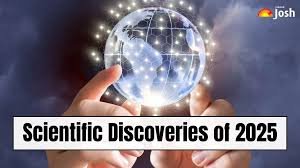Science is more than laboratories, test tubes, or chalkboards filled with equations. It is the engine that powers human progress, the lens through which we understand the universe, and the foundation upon which societies build knowledge, technology, and innovation. In recent decades, the pace of scientific advancement has accelerated, bringing breakthroughs that redefine how we live, work, and even think.
The Nature of Scientific Inquiry
At its heart, science is a method of questioning. It involves observing phenomena, forming hypotheses, testing ideas, and refining theories. This cycle of inquiry ensures that knowledge is not static but continuously evolving. Unlike belief systems, science embraces uncertainty and correction—errors are not failures but stepping stones to deeper understanding.
One striking aspect of modern science is its interdisciplinarity. Boundaries between fields blur as biologists, physicists, computer scientists, and engineers collaborate. These partnerships yield innovations that would be impossible in isolation.
The Micro and the Macro: Exploring Extremes
Science functions across vastly different scales. On one hand, molecular biology dives deep into the microscopic world of DNA, proteins, and cells, unraveling the secrets of life itself. On the other, astrophysics stretches outward, probing galaxies, black holes, and the very origins of the universe.
Each scale informs the other. For instance, particle physics experiments not only help us understand fundamental matter but also inspire technologies like medical imaging. Similarly, studying Earth’s climate from a planetary perspective shapes solutions that affect everyday lives.
Revolutionary Technologies Born from Science
The everyday conveniences we take for granted are rooted in scientific exploration. Semiconductors, born from physics research, gave rise to the digital revolution. Medical discoveries, from antibiotics to vaccines, have doubled life expectancy over the past century. Renewable energy technologies, powered by chemistry and engineering, offer pathways toward a sustainable future.
Artificial intelligence, perhaps the most transformative development of the 21st century, is deeply entwined with mathematics and neuroscience. Its rapid evolution is reshaping industries, education, and even creative pursuits. Behind each new application is a scientific story of algorithms, data, and computational power.
Medicine: The Human Side of Science
Few areas demonstrate the value of science as clearly as medicine. Advances in genetics allow doctors to tailor treatments based on an individual’s DNA, an approach called personalized medicine. Imaging technologies like MRI and CT scans have revolutionized diagnostics, allowing doctors to see inside the body without invasive procedures.
Recent breakthroughs in immunotherapy demonstrate how understanding the immune system can lead to powerful cancer treatments. Meanwhile, neuroscience is uncovering how the brain functions, offering hope for treating conditions such as Alzheimer’s and Parkinson’s disease.
The Environment and Climate Science
One of the greatest challenges of our time is environmental change. Scientific research has provided overwhelming evidence of human impact on the planet’s climate system. Rising global temperatures, melting ice caps, and more extreme weather patterns are not random events but measurable outcomes predicted by climate models.
Yet science does more than diagnose problems; it offers solutions. Renewable energy, carbon capture, and ecosystem restoration are practical responses born from environmental science. Equally, public awareness campaigns grounded in data help communities adapt and mitigate risks.
Ethics and Responsibility in Science
Scientific progress carries immense power, but with power comes responsibility. The ability to edit genes using CRISPR technology, for example, raises profound ethical questions. Should humanity alter genetic codes to eliminate disease? What limits should exist? Similarly, artificial intelligence poses dilemmas about privacy, fairness, and autonomy.
The history of science includes both triumphs and missteps. Acknowledging this duality ensures that future innovation is guided by ethics as much as curiosity. Collaboration between scientists, policymakers, and the public is essential to ensure that discoveries benefit humanity as a whole.
The Global Nature of Discovery
Science transcends borders. International collaborations—such as the Large Hadron Collider in Switzerland, space exploration missions, or global climate research—demonstrate the collective power of shared knowledge. Pandemics, environmental challenges, and space exploration remind us that no single nation can advance alone.
Technology has also democratized science. Crowdsourced data, open-access journals, and citizen science projects allow ordinary individuals to contribute to research. This inclusion not only accelerates discovery but also strengthens public trust in the scientific process.
Education and the Next Generation of Scientists
The future of science depends on inspiring curiosity in younger generations. Education must move beyond rote memorization and instead cultivate critical thinking, creativity, and problem-solving. Hands-on experiments, mentorship, and exposure to real-world applications ignite passion in future scientists.
Diversity in science also matters. Bringing together perspectives from different cultures, genders, and socioeconomic backgrounds enriches research and ensures that discoveries address global needs, not just narrow interests.
Looking Ahead: The Next Frontiers
What might the next century of science bring? Some possibilities are already visible. Quantum computing promises computational power beyond anything imaginable today. Space exploration may uncover evidence of extraterrestrial life or lead to human settlement beyond Earth. Biotechnology may extend human longevity in ways once thought impossible.
At the same time, the tools of science—supercomputers, advanced telescopes, and powerful microscopes—are expanding our vision. With each new tool, the scope of discovery widens.
Conclusion
Science is humanity’s most reliable compass in navigating uncertainty. It is a process of questioning, testing, and refining that propels societies forward. From medicine to technology, from the environment to space, its influence touches every corner of life.
As we move into an era of unprecedented change, the role of science will only grow more vital. But progress must be matched with wisdom. Balancing curiosity with responsibility ensures that discovery remains a force for good. In this way, science does not merely describe the world—it shapes the future of humanity itself.


